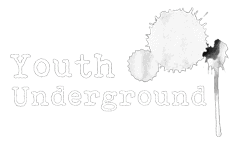PREVENTION PROSECUTION PROTECTION
—
Human trafficking affects all countries and often targets those in poverty seeking better opportunities. Victims are frequently lured by trusted individuals, who can include family members or friends from their communities, promising well-paid jobs. However, upon arrival, they are forced into labor or sex work, trapped by debts they can never repay.
Preventing human trafficking requires widespread awareness and education. This can be achieved through media, social media, and cultural initiatives. Addressing factors that increase vulnerability, such as socioeconomic conditions and cultural practices, is crucial. Promoting safe migration and eliminating exploitation opportunities in destination countries are also essential.
Effective prevention demands the involvement of all sectors—youth, businesses, media, and the entertainment industry. In addition, strengthening anti-trafficking laws and international cooperation is key to bringing traffickers to justice.
Because of the clandestine nature of human trafficking, the majority of cases go unreported and traffickers continue to remain free. It is also very difficult to prosecute traffickers because the victims themselves are often reluctant to testify against them. They fear for the lives and safety of their family members, and are afraid of being punished and deported by law enforcement agencies if they happen to be in a country illegally. It is widely reported that many traffickers are associated with international criminal organizations, which makes them highly mobile, well-protected within these organizations, and subsequently difficult to prosecute. In some cases, local law enforcement agencies or the police forces are themselves involved with the traffickers, because the profits made in the trade of human beings are so high.
In order to combat human trafficking, it is essential that the appropriate laws are in place to prosecute and punish the traffickers, and compensate victims for all damages. Greater international cooperation and involvement of law enforcement agencies with specialized training in this field are essential. Stronger support mechanisms that include witness protection services and possible residence permissions for victims are also required to speed up the prosecution process, and encourage the victims to speak out without fear and be more willing to testify against the traffickers.
Once trafficked, victims are often stripped of all their official documents and threatened with bodily harm. In some cases, the victims are told that their families will be harmed if they do not “cooperate”. This makes them extremely vulnerable and powerless to escape their traffickers.
In some cases, although this is changing worldwide, law enforcement agencies will classify trafficked persons as criminals for breaking immigration laws, and often end up deporting them to their country of origin where they risk being caught by traffickers once again. In order to adequately protect victims of trafficking, it is extremely important to provide psychological and/or physical recovery measures and support.
It is also crucial that the victims are given integration opportunities such as the regularization of their status, employment, training, housing and medical care. In order to crack down on trafficking, government and law enforcement agencies must protect the victims’ identities, gain their confidence, and safeguard their physical and psychological being. All partners – governments, educations institutions, businesses, NGOs, and others – must work together to ensure that victims of human trafficking are detected and provided all the support they need, through rehabilitation centers, telephone hotlines, and all necessary information to allow them to move forward with their lives.
—




